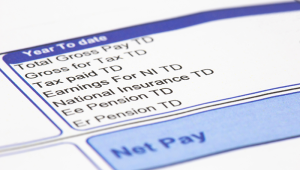By David Williams
9 February 2011
Treasury plans to increase employee contributions to public sector pensions risk ‘breaking’ the system by prompting a mass exodus of members, the chief of one of the UK’s major schemes has warned.
Mike Taylor, chief executive of the London Pensions Fund Authority, said today that government plans to increase worker contributions by 3% over the next three years could end up costing the public purse more if staff chose to opt out of their schemes.
The proposals, which are not expected to be detailed in full by the Treasury until the summer, would aim to bring in £1.8bn a year, including £900m from the Local Government Pensions Scheme.
But Taylor said the reforms could result in a ‘mass opt-out’, before Lord Hutton’s review of the pension system is published, expected in early March.
The Treasury estimates the plans would result in take-up dropping by only 1%, but Taylor pointed to GMB union estimates suggesting that up to 40% of employees would leave the LGPS.
Such a stampede would lead to a fall-off in contributions from employees, causing bigger deficits in funds and bringing forward the date when payments exceed contributions.
Taylor said: ‘This would have the effect of breaking the scheme before Lord Hutton gets the chance to fix it.
‘If significant numbers opt out, then not only will the government not get its £900m, but funds will face increasing deficits at a time when they can least afford them.
‘Employers could well end up having to put more money in than they do today, resulting in a net loss to the public purse.
Taylor added that a top civil servant’s pension contributions could rise from 1.5% of pay to 4.5%, while a social worker’s could increase from 6.5% to 11%. ‘Is that fair?’ he asked.
But, he added, because the LGPS is funded, it can raise £900m in more ways than simply increasing employee contributions.
He suggested reducing accrual rates, increasing retirement ages or removing the final salary basis for some schemes could bring about the necessary reduction in employer contributions.
‘A break in the link between service accrued and final salary by protecting previous pension rights via a deferred benefit would cut the deficit and therefore the payments employers are currently making.
‘It has been estimated that such an action could reduce deficits in the LGPS by £20bn.’



















